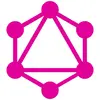
Apollo
Apollo is a stunning Reddit client that is created for reckless navigation with an extremely commanding set of features. Reddit’s a great way to discover and discuss content on the internet, but it’s also an incredible source of the content itself. With introducing Apollo Share, a new feature that lets you save posts to read later in Pocket. When you find a long-form article or even just a really great piece of text on Reddit, you can now save it for later by sharing it immediately from the Apollo share menu.
With Jump Bar, fully customizable gestures, and a super-charged Media Viewer, Reddit has become the interactive place to carry on the discussion in an exciting way. There are multiple features to offer that include: tabbed interface, full inline imgur, safari view controller, 3D touch support, GIF scrubbing, multi-accounts support, filtering and blocking support, moderator features, tons of setting support, face ID support, GIF scrubbing, and more to add.
Apollo Alternatives
#1 Graphql.js
Graphql.js is a query language that facilitates you with a detailed description of the data in your API. The graphql.js module allows you to use GraphQL in Node.js and Express applications while still utilizing the Express engine. You can also use it to query MongoDB databases and get a query result in JSON format. Graphql.js allows developers to create an abstract description of the data that their API supports and then generate a bespoke client for any given language or have clients auto-generated.
The query language also comes with tools for authoring and hosting Graphql APIs as well as generating schema documentation, which can be used to create clients or even just easily understand the data they contain. A GraphQL API can be requested by client applications in the form of a query rather than an entire data payload. This allows the client to specify what data it needs from the Server and nothing more. An advantage of this approach is that only the data that the client actually needs is transferred across the network. This results in smaller payloads, faster page loads, and lower bandwidth usage on servers.
#2 JSON API
This is the JSON API project used for building APIs in JSON. It’s used by both open source and enterprise projects because it’s a great way to create APIs. The JSON API specification is a community-driven effort to create a specification for how to design APIs in JSON. The JSON API format offers a solution to the problem of creating, consuming, and designing APIs. JSON API can be your anti-bike-shedding tool and comes with the shared conventions, you can enhance your productivity, and you will focus on what your application need.
#3 Vscode-graphql
Vscode-graphql is an extension that adds syntax highlighting, validation, and language features to VSCode for GraphQL documents. This extension makes it easier by setting up a query template based on your selection of fields. As a developer, you have a massive experience with the tight integration of the GraphQL ecosystem with VSCode. Vscode-graphql also comes with a pretty cool feature; you can use GraphQL queries as language hints in your editor. Its general features are load extension, syntax highlighting, validation against the schema, autocomplete suggestion, hover support, outline support, snippets, and more to add.
#4 Graphene
Graphene is a Library OS that is intended for Linux multi-process applications that come with Intel SGX support. It is a single-address-space operating system for multi-process applications, with an emphasis on security, resource control, and ease of development. Graphene is built on the principle that all processes should enjoy equal access to system resources. Therefore, all resources are allocated from a global resource pool. The use of resource ownership increases the ease of development by allowing an application developer to focus on a set of processes rather than individually managing each resource that the process uses.
In addition, resource ownership leads to increased security by allowing processes to be isolated from each other’s critical data while guaranteeing that they share equal access to system resources. Graphene is a Library OS for Linux multi-process applications, with Intel SGX support. It allows the creation of new sandboxes desktop applications, which are more secure than the standard containerized sandboxes.
#5 Mercurius
Mercurius is a GraphQL adapter for Fastify, providing you with tools that make it easier for you to use GraphQL with your existing codebase. It makes it easy to use GraphQL with Fastify, and is fully compatible with the Fastify router. GraphQL is a powerful API language that allows you to define your API in a single document. This makes it easy to change your API’s structure, without having to worry about breaking backward compatibility. With Mercurius, you can use GraphQL to query your data and to create and manage your GraphQL servers. Mercurius is open source and available on GitHub. It provides you features like: caching query parsing & validation, subscriptions, batched query reports, customizable persisted queries, automatic loader integration, in time compiler via graphql-jit, gateway implementation, and more to add.
#6 Prisma GraphQL API
Prisma GraphQL API is an open-source database tool that replaces traditional ORMs and helps in accessing database access. It also offers GraphQL as a query language for APIs to use in the database. The platform allows users to build GraphQL servers to connect them to a database, and users can combine Prisma with tools like Apollo Server, TypeGraphQL, etc.
The platform also helps users to integrate different servers with Prisma, and then they can use the software for introspecting databases, sending database queries, and evolving the application. It allows users to be more productive with their database, and users can use it to create various APIs.
Prisma GraphQL API also offers various GraphQL tools such an SDL-first or Auth and enables users to learn how to use them with the Prisma. The main role of Prisma in GraphQL is to read data in the database and send a response in the form of GraphQL format.
#7 Cube.js
Cube.js is a leading open-source modular framework that allows developers to build a web application for in-depth analytics. The software is dispensing functional tools to the businesses that permit a complete visualization agnostic front-end SDKs and API backed by analytical server infrastructure and is an elegant way to provide a complex analytical solution via custom-tailored analytics experience.
The platform is mainly based on SQL code that does the tricks for the building of a modeling framework. The critical components offered by Cube.js are data pre-aggregation, security, query results caching, and analytics SQL generation. There are multiple features to provide that are pre-built data visualizations, the advanced two-level caching system to build extremely performant dashboards, enterprise-grade security, and multi-tenancy both for various databases and data schemas. The software is useful when it comes to raw model data into meaningful business definitions, and now you can use client libraries and API to build analytics directly into the apps.










